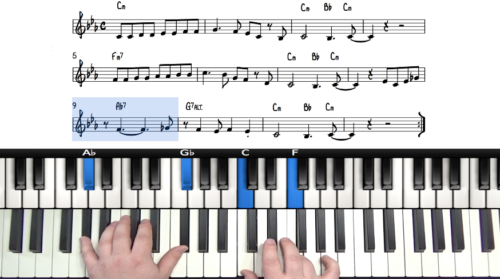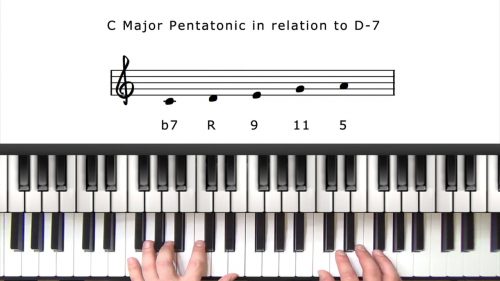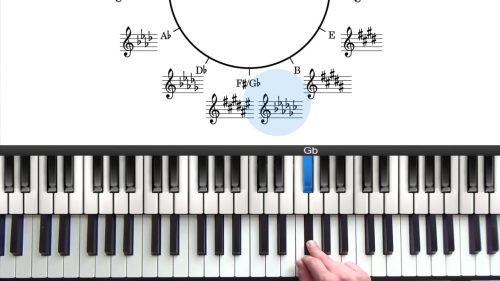How to Play Like McCoy Tyner
In this lesson we will take a look at one of the greatest musicians in modern jazz and stylistically probably the most copied pianist of all time.
McCoy Tyner was born December 11, 1938 in Philadelphia. He started playing classical piano at the age of 13. Early jazz influences were his neighbors Bud and Richie Powell.
McCoy’s first gig was with the Jazztet led by Benny Golson and Art Farmer. Soon after that he joined the John Coltrane Quartet, which would become one of the most important groups of the 60’s. This Quartet, together with the Miles Davis Quintet, would stretch the boundaries of modal jazz to the pinnacle. Great records from the group to check out are: Coltrane’s Sound, My Favorite Things, Ballads, A Love Supreme, Crescent, Live At the Birdland and Coltrane Plays the Blues.
Both during and after his time with Coltrane’s group, he recorded extensively as a sideman for other leaders and as a leader himself. Good albums from the 60’s to check out are his debut Inception, Nights Of Ballads and Blues, McCoy Tyner plays Ellington and The Real McCoy. The Real McCoy is considered one of the most important records of all time, and it is a great document of McCoy’s style, perfected by years with Coltrane’s group before.
Following the 1960’s he recorded extensively as a leader and sideman, using many different influences and styles. These included African and East Asian elements, and he used a range of instruments from koto to harpsichord and celeste.
The Transcription.
For this course I have chosen a transcription of the first 64 bars of McCoy’s solo on Passion Dance from his masterpiece album The Real McCoy. This is a great example of modal improvisation over one chord, and perfectly demonstrates McCoy’s phrasing style.
Practice Tips
-
Once you are comfortable playing the transcription, take a look at some of the left hand quartal voicings in the video for further insight into McCoy's sound.
-
Tuomo's tutorial on how McCoy constructs melodies from bars 18 and 19 of the transcription may seem exhaustive but working on just one or two of those patterns will give you a lot of material to create your own pentatonic lines.
-
In the four bars from bar 13, McCoy takes a simple melody and moves it through several different keys before resolving. This gives us a relatively simple way to work on playing "outside" the harmony - choose a simple melody and transpose it to a few different keys before returning.





What a great lesson! Lots to take in, but really helpful pointers on how to get started – thank you! Any chance of a follow up lesson on his left hand style? That would be fantastic 😀
Hi Jane!
Lesson on McCoy’s left hand is a great idea! We’re definitely put that on ‘to-do’ list 🙂
Meanwhile, here are some transcription analyses that cover McCoy – topics and his left hand, you might want to check out:
https://www.pianogroove.com/community/t/mccoy-tyner-transcription-exercises/5169
Download the ‘Full Transcription’ and ‘Analysis’ from both songs from the website above.
Let me know if you have any further questions,
-Tuomo
Thank you for the links Tuomo – so much great stuff to study and learn!